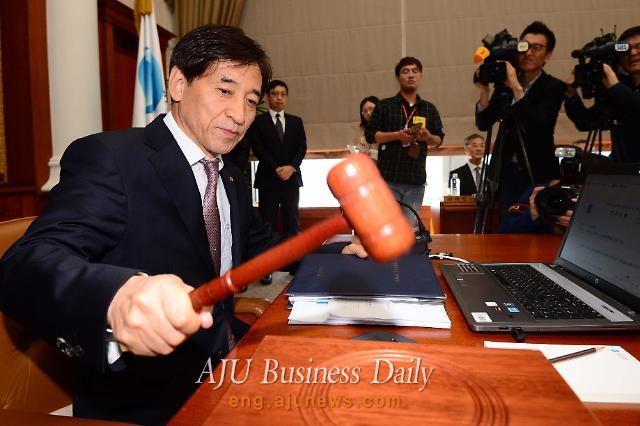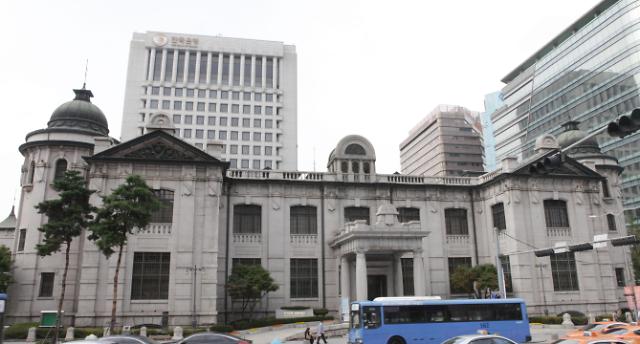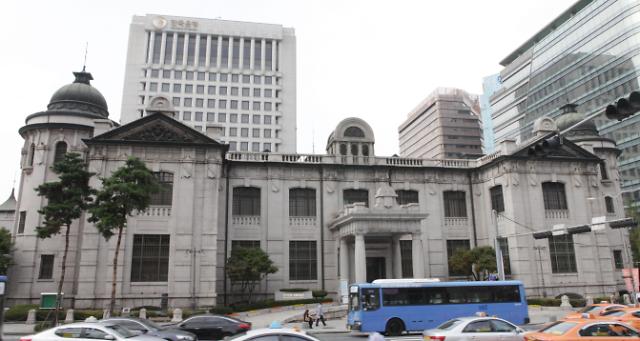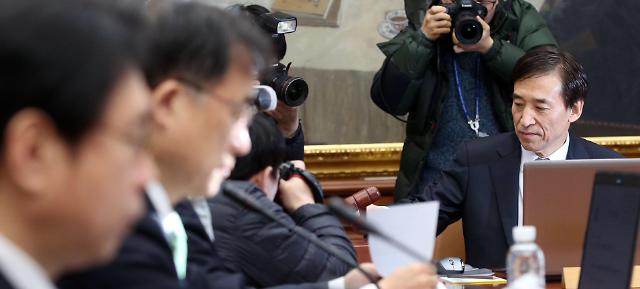
Since August last year, the BOK has slashed the key rate by a total of 1 percentage point via four rate cuts - in August and October 2014, March and June 2015 - to bolster growth momentum.
Following is the full text of a statement the central bank issued after a meeting of its Monetary Policy Board earlier in the day. The meeting was presided over by BOK Governor Lee Ju-yeol.
"Based on currently available information, the board considers that the trend of economic recovery in the United States has been sustained, and that the improvements in the euro area have continued as well. Economic growth in emerging market countries, including China, has, meanwhile, continued to slow. The board forecasts that the global economy will maintain its recovery going forward, albeit at a moderate pace, centering around advanced economies, such as the United States, but judges that the possibilities exist of its being affected by heightened international financial market volatility due, for example, to a shift in the U.S. Federal Reserve’s monetary policy, and by the weakening of economic growth in emerging market countries.
"Looking at the Korean economy, although domestic demand activities such as consumption and investment have shown trends of recovery, the trend of declining exports has persisted, while the improvement in economic agents’ sentiments has been inadequate. On the employment front, as the number of persons employed increased in September, the employment-to-population ratio rose compared to that in September last year, while the unemployment rate maintained the same level. The board forecasts that the domestic economy will continue its recovery going forward, centering around domestic demand activities, but in view of external economic conditions judges the uncertainties surrounding the growth path to be high.
"Consumer price inflation fell to 0.6 percent in September, from 0.7 percent in August, owing mainly to slowdowns in the rates of agricultural product price increase and declines in petroleum product prices. Core inflation excluding agricultural and petroleum product prices registered 2.1 percent, the same as in August. Looking ahead, the board forecasts that inflation will continue at a low level, due mainly to the effects of the low oil prices. In the housing market, the upward trends of sales and leasehold deposit prices have accelerated, centering around Seoul and its surrounding areas.
"In the domestic financial markets, stock prices have risen and the Korean won has appreciated against both the U.S. dollar and the Japanese yen, in line mostly with the subsiding of instabilities in the Chinese financial and foreign exchange markets and with expectations of a delay in the policy rate hike by the U.S. Federal Reserve. Long-term market interest rates have fallen, in response mainly to interest rate movements in major countries. Bank household lending has sustained a trend of increase at a level substantially exceeding that of recent years, led by mortgage loans.
"Looking ahead, while working to sustain the recovery of economic growth, the board will conduct monetary policy so as to maintain price stability over a medium-term horizon and pay attention to financial stability. In this process, it will closely monitor the trend of increase in household debt and external risk factors, such as any changes in the U.S. Federal Reserve’s monetary policy or in economic conditions in emerging market countries, including China, as well as the trends of capital flows."




